The 16 Best Startups That Launched In 2014
GLAMSQUAD brings hair salon-quality blowouts to your apartment.

Spring is the Instagram for shopping.

What it is: Angel investor David Tisch has funded startups like Harry's, Kitchensurfing, and Flatiron Health, but he took a stab at cofounding a startup this year with Spring. Spring is sort of like the Instagram for shopping: you swipe through lifestyle pictures, not just flat pictures of products, and you can purchase anything you see in the app with a few taps.
Spring has new products from major fashion brands daily, exclusive Spring offers, and you can even use Apple Pay to purchase clothes and goods with your fingerprint. Apple just named Spring one of the best apps of 2014.
Launch date: Spring launched in August.
Funding: Spring raised a $7.5 million Series A round in July. The round was led by Thrive Capital, Groupe Arnault and Box Group. Other investors include Founder Collective, Google Ventures, SV Angel, and Lerer Hippeau Ventures.
Website: shopspring.com
DWNLD makes apps easy to make, customize and get published in the App Store.
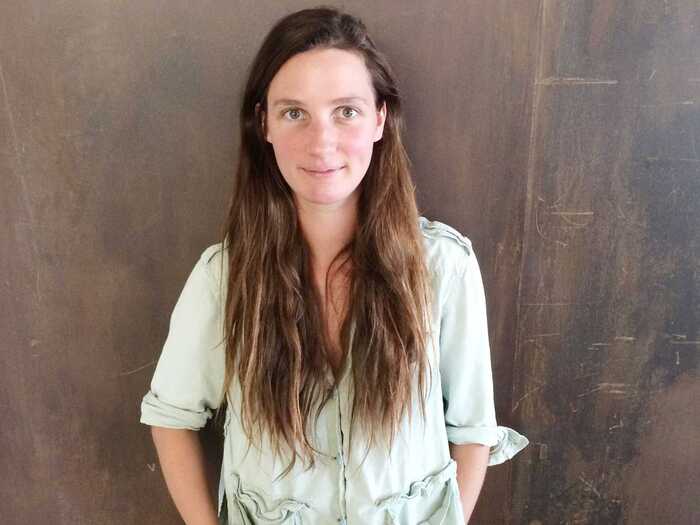
What it is: DWNLD is to apps what Wordpress is to websites: it's a startup that lets anyone create an app quickly and cheaply and put it in the App Store. DWNLD was founded by angel investor Fritz Lanman and Alexandra Keating.
DWNLD's service costs $15 a month, and lets its users customize apps with easy design tools. Publishers also have the option of turning on iAds to monetize their apps. After the app is complete, DWNLD submits it to the App Store, and within 7 to 10 days, the app usually gets approved.
Launch date: DWNLD launched in September.
Funding: DWNLD has quietly raised $2 million in seed funding from WME, Michael Arrington’s CrunchFund, The Chernin Group, Gordon Crawford, and other media executives.
Website: dwnld.me
Ello is the ad-free, anti-Facebook social network.
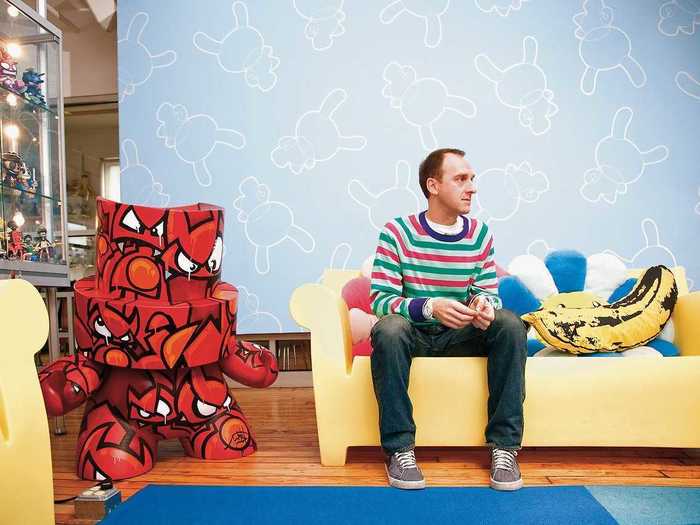
What it is: Ello is a minimalist social network that promises no advertisements. In fact, Ello even has a manifesto that states the social network will never run ads or sell your personal information to advertisers. Ello is free to use, but you can pay for new features. "Say you’re a musician or a band, and you want to control multiple accounts from a single login," designer and Ello founder Paul Budnitz told Business Insider. "We can charge $2 for that. It’s not for everyone.”
Ello has become something of a community for finance reporters and analysts recently, too. Budnitz told Business Insider in October that at the time, Ello already had more than 1 million users, and 40,000 to 50,000 new signups per hour during its initial frenzy.
Launch date: Ello launched in invite-only beta mode in August.
Funding: Ello raised $5.5 million in venture funding led by Foundry Group in October.
Website: ello.co
Curbside lets you order stuff on your phone and pick it up at the store without leaving your car.

What it is: Curbside lets you buy stuff from brick-and-mortar stores on your phone. Instead of waiting for delivery, you pick up your purchases from the store — curbside — without ever having to get out of your car. When it launched, Curbside had partnered with retailers including Target, and was only operational in the San Francisco Bay area. Next year, the startup plans to expand to 15 markets.
Launch date: Curbside launched in October with apps for Apple and Android.
Funding: In October, Curbside raised $8 million in Series A funding from O'Reilly AlphaTech Ventures, Innovation Endeavors, Chicago Ventures, AME Cloud Ventures, and angel investors. Since its founding, Curbside has raised $9.5 million.
Website: www.shopcurbside.com
Reserve takes all the pain out of making restaurant reservations.

What it is: Joe Marchese, the founder of adtech company true[x], first got the idea for his real-time restaurant reservation startup Reserve while out to dinner with one of his employees last year. Both men agreed that the whole process of going out to dinner — making a reservation and paying for the meal, for example — could be made more efficient. Reserve, which competes with startups like OpenTable and offers restaurant reservations, was developed by Uber cofounder Garrett Camp's startup studio, Expa.
Launch date: Reserve launched on iOS in October in New York, Boston, and Los Angeles. Reserve has partnered with about 20 to 30 restaurants in each city and plans to launch soon in Washington, D.C., London, and San Francisco.
Funding: Reserve hasn't disclosed how much money the startup has raised, but a spokesperson told TechCrunch that Reserve is “pre-Series A” and has about 30 employees.
Website: reserve.com
Shyp sends your packages for you, so you never have to step foot in the post office.
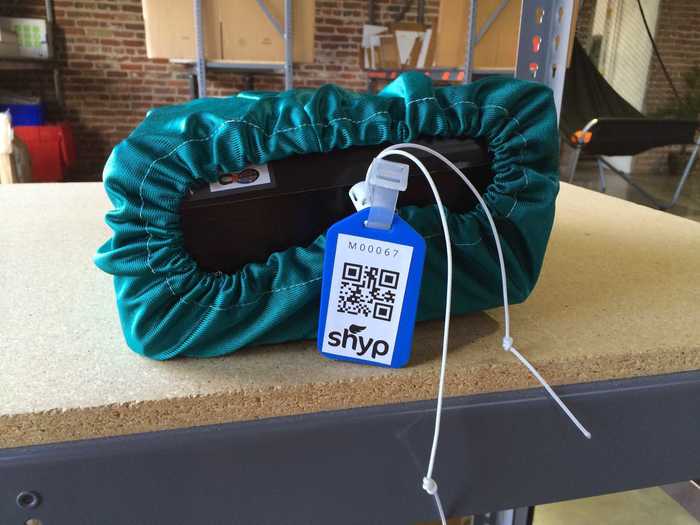
What it is: Shyp takes all the hassle out of shipping packages. Instead of taking a package to UPS, FedEx, or the post office, Shyp lets you take a picture of whatever you want to send. A driver picks up the package in minutes, and you're done. The cost to you is the USPS rate, which is usually the least expensive option.
Launch date: Shyp launched in San Francisco in March, in New York in September, and in Miami in November. The company says the startup's rollout will continue next year in Los Angeles.
Funding: Shyp raised $2.1 million in seed funding in September 2013 from Fresh VC, Winklevoss Capital, SherpaVentures, Homebrew, and notable angel investors. In July, the startup raised $10 million in a Series A round of funding from SherpaVentures and Shervin Pishevar.
Website: www.shyp.com
Jet.com is Marc Lore's mysterious "Amazon-killer" e-commerce website.
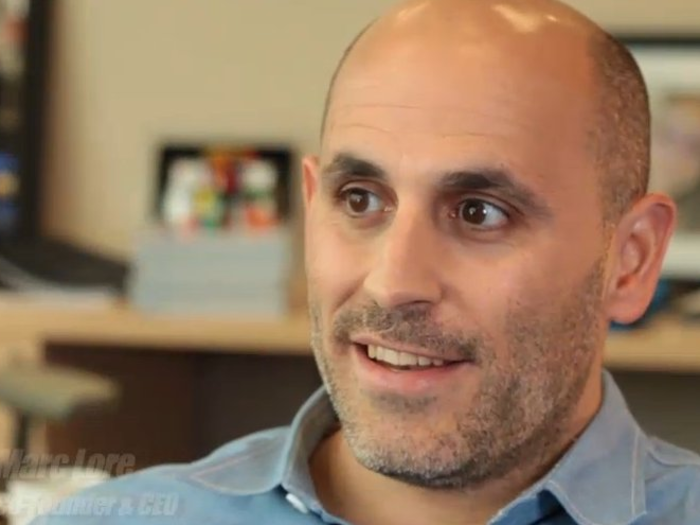
What it is: Marc Lore, an e-commerce veteran who used to be CEO of Quidsi — the website behind Diapers.com — has been working on a mysterious, stealthy new e-commerce startup called Jet, which is rumored to be an Amazon-killer. Lore has promised Jet will be a "new kind of e-commerce experience, uniquely grounded in transparency and customer empowerment."
Launch date: While Jet hasn't officially launched yet, it has announced it would offer shares of stock to early users. How it works: you sign up on Jet's website, you'll get early access and a six-month membership to the website for free. You'll also receive a link to send to others to convince them to sign up. The person with the most referrals will receive 100,000 shares of stock, and the ten people with the most referrals will receive 10,000 shares each.
Funding: In July, Jet raised $55 million from High Peaks Venture Partners, MentorTech Ventures, Bain Capital Ventures, Accel Partners, and New Enterprise Associates. In September, Jet raised $25 million from Western Technology Investment and Silicon Valley Bank to round out its Series A round of funding.
Website: jet.com
Mink lets you 3D print customized makeup from your home computer.

What it is: Grace Choi is taking on the $55 billion cosmetics industry with Mink. Choi first presented her idea for Mink at TechCrunch Disrupt in May. "The makeup industry makes a whole lot of money on a whole lot of bulls---." She said at TechCrunch Disrupt. "They charge a huge premium on something that tech provides for free. That one thing is color."
Mink is a printer that attaches to your home computer, camera, or phone to print customizable makeup. You can request an invite for a Mink printer on Mink's website. When it becomes available, it'll cost $300.
Founding date: Mink was founded in 2014.
Funding: Mink is a bootstrapped startup. Choi has not raised any venture capital money for Mink, and has said that she's not interested in doing so.
Website: gracemink.com
Alfred is your affordable, personal butler.

What it is: Alfred, which won TechCrunch Disrupt San Francisco in September, takes on-demand startups to the next level by offering a butler for $99 a month. Named after Batman's butler, Alfred first asks invited users to take a short quiz so the service can learn a bit about you. Then, you get assigned a butler — an Alfred — who you can meet with in person or talk to on the phone to discuss the specifics of your home. You can give a copy of your keys to your Alfred, or even use the Alfred app to scan your key and remotely offer a copy of your key to your Alfred assistant.
After working out a schedule, your Alfred will stop by once or twice a week and take care of all your chores: sorting mail, folding clothes, picking up your laundry, and cleaning your house. Marcela Sapone and Jessica Beck came up with the idea for the startup for a Harvard Business School class project. They realized the business potential it had, and left school to work on it.
Launch date: Alfred launched in September at TechCrunch Disrupt SF.
Funding: In November Alfred raised $2 million in seed funding from CrunchFund, SV Angel, and Spark Capital.
Website: www.helloalfred.com
You'll never forget a meeting again with x.ai.
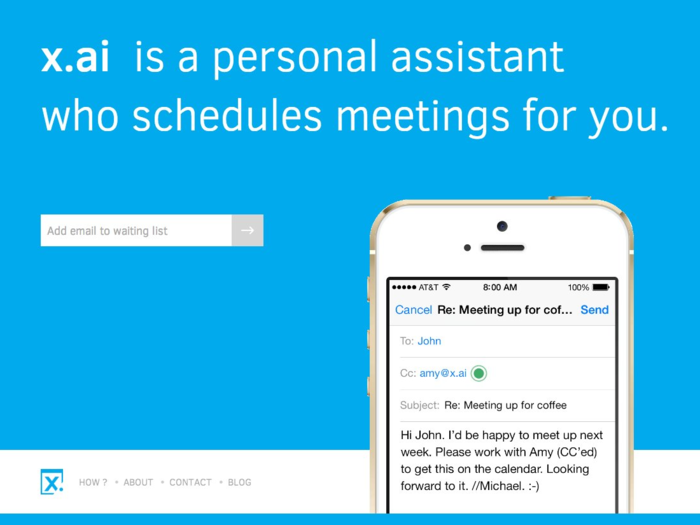
What it is: x.ai — pronounced "X dot A I" — is an artificial intelligence-powered personal assistant that uses email to help you schedule all your meetings. You talk to Amy, your x.ai assistant, and have her take care of the boring email scheduling simply by CCing Amy@x.ai on your emails. x.ai is currently in beta testing, but you can add your email to the waiting list here.
Founding date: x.ai was founded in April.
Funding: x.ai raised $2.1 million in May from SoftBank Capital, Dennis R. Mortensen, Lerer Hippeau Ventures, and IA Ventures.
Website: x.ai
Yo is the stupidly simple notification app that went viral this summer.
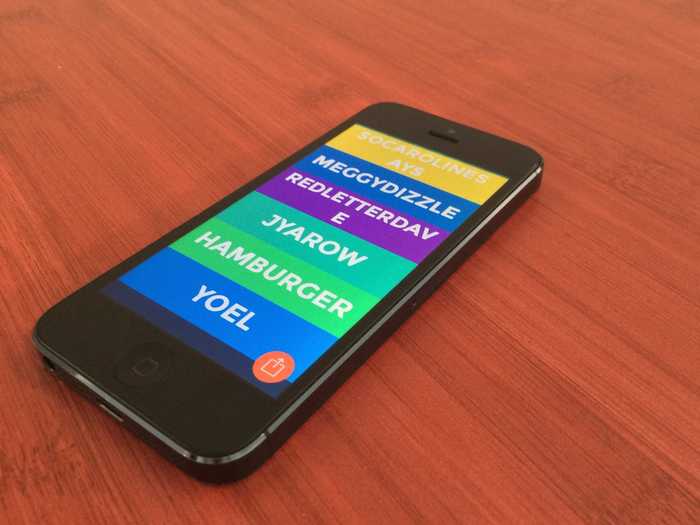
What it is: Or Arbel's zero-character messaging app Yo is bafflingly simple: you open the app, tap a friend's name, and they receive a notification that says "Yo!" in a robotic voice (the voice behind the Yo is actually Arbel himself). In response, you can send a Yo back. The app took only 8 hours to create. Two months later, Yo went viral and became the #1 social networking app in the US App Store and the #4 app overall.
Launch date: Yo launched quietly in April.
Funding: In July, Yo raised $1.5 million at a $5-10 million valuation. Investors participating in Yo's seed funding round included the founders of China's Tencent, Mashable founder Pete Cashmore, Betaworks, and angel investors.
Website: www.justyo.co
Talk to and share ideas with your coworkers easily with Slack.
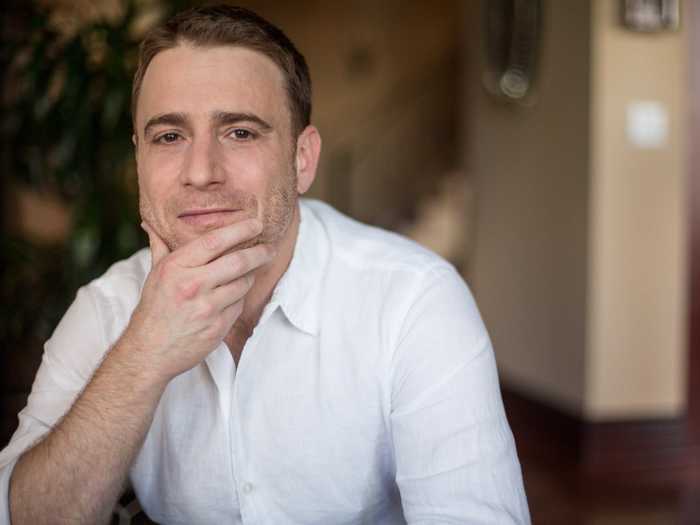
What it is: Slack is a workplace communication app that's taken the business world by storm. It provides a group chat room and lets users share files and work collaboratively too. Slack was originally a feature built by CEO Stewart Butterfield's Project Speck while making the multiplayer game Glitch, but he decided to spin it out into its own product and company.
Slack's growth as an enterprise communication tool has been completely organic — Slack hasn't spent any money on marketing. It's one of the fastest growing enterprise apps of all time.
Launch date: Slack officially launched in February.
Funding: This year, Slack raised two different rounds of funding. In April Slack raised $42.8 million from Andreessen Horowitz, Accel Partners, and The Social+Capital Partnership. In October it raised $120 million from Slow Ventures, The Social+Capital Partnership, Accel Partners, Andreessen Horowitz, Google Ventures, and Kleiner Perkins Caufield & Byers. Overall, Slack has raised $180 million.
Website: slack.com
Humin makes it easier for you to remember people you meet.

What it is: Humin remembers all the details about the first time you meet someone so you never have to. The app uses your social media and phone contacts to create a list of your Favorites, which you're greeted with when you open the app. Every time you add a new phone number to Humin, which is designed to replace your Contacts and Phone apps, the app brings up the person's name, when and were you met, the people you both know, and where the person works. If that person's on social media, Humin will add a photo of the person so you'll never forget a name or a face.
Founding date: Humin was founded in 2013. It went live in the App store in August.
Funding: None announced.
Website: www.humin.com
Casper takes all the headache out of buying a new mattress.
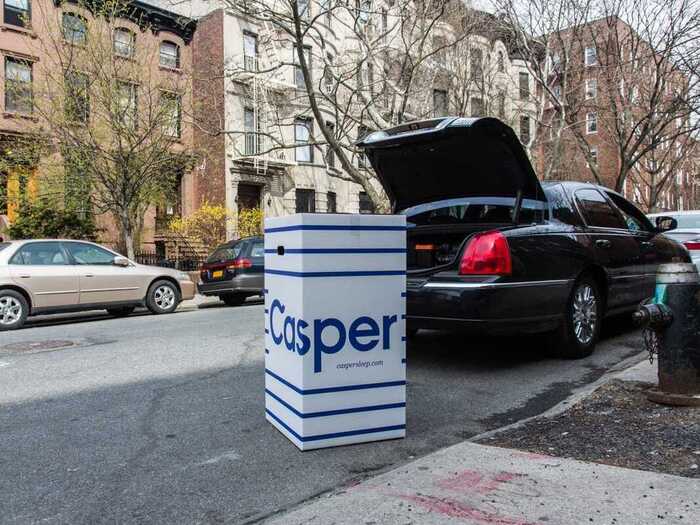
What it is: Casper was founded to simplify the process of getting a mattress. Instead of a traditional mattress you'd buy at Sleepy's, Casper stuffs a big, fluffy mattress into a box and delivers it right to your door. In New York City, Casper says it'll deliver your mattress in two hours. Casper's mattresses come in six sizes and cost between $500 and $950 with a 10-year warranty. Casper told Business Insider the company was profitable on its first day of business, doing $1 million in sales in its first 28 days.
Launch date: Casper launched in April.
Funding: In January Casper raised a $1.9 million round of seed funding from QueensBridge Venture Partners, Correlation Ventures, Crosslink Capital, Vaizra Investments, Lerer Hippeau Ventures, and Norwest Venture Partners. In August, Casper raised $13.1 million in a Series A round of funding from Kevin Colleran, Slow Ventures, Vaizra Investments, Crosslink Capital, Norwest Venture Partners, Cendana Capital, Silas Capital, Consigliere Brand Capital, SV Angel, A-Grade Investments, Lerer Hippeau Ventures, and New Enterprise Associates.
Website: casper.com
Cyber Dust lets you send self-destructing messages while protecting your privacy.

What it is: Mark Cuban created Cyber Dust with help from Mention Media. Cyber Dust is a free texting app that lets its users send texts and pictures that disappear after 30 seconds, similar to Snapchat. Unlike Snapchat, however, Cyber Dust promises that it leaves no trace of any of the messages. They're not stored anywhere. Cyber Dust also tells you when someone takes a screenshot, though there is no name nor identifying information attached to the messages. You'll get confirmations when your messages are sent and read, and the messages expire 12 hours from when they're sent regardless of whether your friends view them.
"Anything that can be misconstrued in any way, shape or form, I'm going to do it on Cyber Dust," Cuban said. "There's a digital footprint for everything, and it becomes harder [to own] the playbook of our lives on Facebook or on email or texts. It's hard to have context that's right."
Founding date: Cyber Dust was founded in March.
Funding: None announced.
Website: cyberdust.com
Now check out the startup CEOs everyone's talking about...

Popular Right Now
Popular Keywords
- India’s wearables market decline
- Vivo V40 Pro vs OnePlus 12R
- Nothing Phone (2a) Plus vs OnePlus Nord 4
- Upcoming smartphones launching in August
- Nothing Phone (2a) review
- Current Location in Google
- Hide Whatsapp Messages
- Phone is hacked or not
- Whatsapp Deleted Messages
- Download photos from Whatsapp
- Instagram Messages
- How to lock facebook profile
- Android 14
- Unfollowed on Instagram
Advertisement